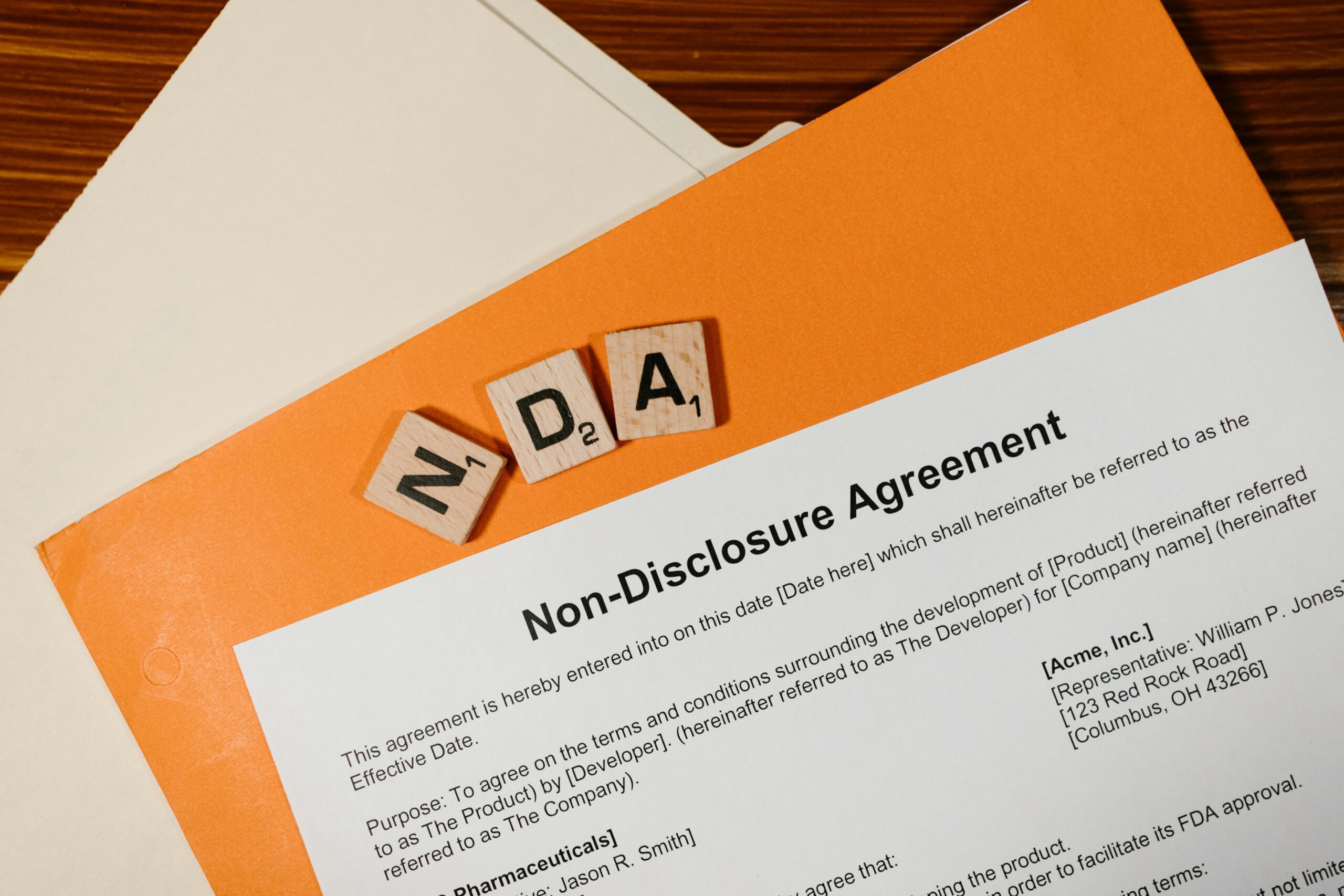AI Integration and Legal Compliance
for Small Businesses in 2025
Updated September 9, 2025 | Reading Time: 12 minutes
Artificial intelligence is transforming how small businesses operate, from automated customer service chatbots to AI-powered hiring tools and workplace monitoring systems. While these technologies offer tremendous opportunities for efficiency and growth, they also create complex legal compliance challenges that small business owners cannot afford to ignore.
Unlike large corporations with dedicated legal teams, small businesses must navigate AI compliance requirements with limited resources while ensuring they don’t inadvertently violate employment laws, privacy regulations, or anti-discrimination statutes. Understanding these legal boundaries is essential for any small business considering AI integration.
Table of Contents
- AI in the Small Business Workplace
- Employment Discrimination and Bias Risks
- Wage and Hour Compliance Issues
- Privacy and Data Protection Requirements
- AI in Hiring and Employee Screening
- Navigating State and Local AI Laws
- Small Business AI Compliance Checklist
- Safe Implementation Strategies
- Warning Signs and Red Flags
- When to Seek Legal Counsel
AI in the Small Business Workplace
Small businesses are increasingly adopting AI tools for various workplace functions, often without fully understanding the legal implications. Common applications include:
Customer Service and Communication
- Chatbots: Automated customer service responses and initial screening
- Email automation: AI-generated responses and follow-up communications
- Translation services: Real-time language translation for diverse customer bases
Human Resources and Employment
- Resume screening: Automated review of job applications
- Interview scheduling: AI-powered coordination of candidate interviews
- Performance monitoring: Tracking employee productivity and behavior
- Video interviewing: AI analysis of candidate responses and demeanor
Business Operations
- Inventory management: Predictive ordering and stock optimization
- Financial analysis: Automated bookkeeping and expense categorization
- Marketing automation: Targeted advertising and customer engagement
⚠️ Key Legal Reality
Small businesses remain fully liable for employment decisions and workplace practices, regardless of whether they use AI tools or human employees to perform these functions. AI doesn’t provide legal immunity. In fact, it can actually increase compliance risks if not properly managedEmployment Discrimination and Bias Risks
The most significant legal risk for small businesses using AI involves potential employment discrimination. Federal anti-discrimination laws apply regardless of whether discrimination occurs through human decision-making or AI algorithms.
Common Discrimination Scenarios
Biased Hiring Algorithms
AI hiring tools can perpetuate historical discrimination patterns. For example, if your company has historically hired predominantly young, male employees, an AI system trained on this data might automatically screen out older candidates or women, even when these characteristics are irrelevant to job performance.
Proxy Discrimination
AI systems might use seemingly neutral factors that correlate with protected characteristics. Using zip codes, educational institutions, or employment gaps as screening criteria can indirectly discriminate against racial minorities, women, or individuals with disabilities.
Disability Discrimination
AI tools that analyze speech patterns, facial expressions, or typing speed during interviews may inadvertently discriminate against candidates with disabilities, violating the Americans with Disabilities Act.
Real-World Example
A small marketing agency used an AI resume screening tool that automatically rejected candidates with gaps in employment history longer than six months. This practice disproportionately eliminated women who had taken maternity leave and individuals who had taken time off for medical reasons, creating potential liability under both gender and disability discrimination laws.
✅ Best Practice
Before implementing any AI tool that affects employment decisions, conduct a thorough analysis of how the tool makes decisions and what data it uses. Test the tool with diverse candidate pools to identify potential discriminatory patterns before full deployment.Wage and Hour Compliance Issues
AI workplace monitoring tools can create unexpected wage and hour compliance challenges under the Fair Labor Standards Act (FLSA) and state labor laws.
Time Tracking and Compensable Time
AI Monitoring Systems
Tools that track employee computer activity, keystrokes, or productivity metrics might not accurately capture all compensable work time. For example, an employee thinking through a complex problem or reviewing documents without typing might appear “inactive” to an AI system, but this time is still compensable under federal law.
Automated Break Deductions
Some AI systems automatically deduct break time based on patterns rather than actual break periods. Under the FLSA, short breaks (20 minutes or less) must be paid, and employers can only deduct unpaid meal periods when employees are completely relieved of duties.
Overtime and Classification Issues
AI tools that change how employees perform their jobs can affect their exempt status under FLSA overtime rules. If AI handles many analytical tasks previously performed by an exempt employee, that employee might no longer qualify for the administrative exemption.
💡 Compliance Strategy
Implement human oversight for all AI-driven time tracking and payroll systems. Regularly audit AI time records against actual work performed and provide easy mechanisms for employees to report and correct AI errors in time tracking.Privacy and Data Protection Requirements
AI systems often require extensive data collection, creating privacy compliance challenges under state and federal laws.
Employee Privacy Rights
Data Collection Limitations
While employers generally have broad rights to monitor workplace activities, AI systems that collect biometric data, record conversations, or track personal activities may trigger additional legal requirements. Some states have specific biometric privacy laws that require explicit consent and strict data handling procedures.
Notice Requirements
Several jurisdictions require employers to notify employees when AI systems are used for workplace monitoring or employment decisions. For example, Illinois requires notice when AI analyzes video interviews.
Customer Data Protection
AI customer service tools must comply with various privacy laws, including industry-specific regulations. Healthcare businesses using AI must consider HIPAA compliance, while financial services companies must address GLBA requirements.
AI in Hiring and Employee Screening
The hiring process presents the highest legal risks for small businesses using AI, as it directly impacts protected employment decisions.
Background Check Compliance
AI tools that access or analyze background information may trigger Fair Credit Reporting Act (FCRA) requirements, including:
- Providing standalone disclosure before obtaining reports
- Getting written authorization from candidates
- Following adverse action procedures when rejecting candidates
Skills Testing and Assessment
AI-powered skills assessments must be job-related and consistent with business necessity. Tests that disproportionately affect protected groups require validation that they accurately predict job performance.
Video Interview Analysis
AI systems that analyze candidate behavior, speech patterns, or facial expressions during video interviews face increasing regulatory scrutiny. Some jurisdictions require:
- Advance notice to candidates about AI analysis
- Explanation of how the AI evaluates responses
- Option for candidates to request human review
- Demographic impact reporting
⚠️ Hiring Risks
Never rely solely on AI recommendations for hiring decisions. Always maintain human oversight and the ability to override AI recommendations based on individual candidate qualifications and legitimate business needs.<Navigating State and Local AI Laws
Small businesses must comply with a growing patchwork of state and local AI regulations, many specifically targeting employment applications.
Current State Requirements
New York City Local Law 144
Requires employers using automated employment decision tools to conduct annual bias audits and publish results publicly. Applies to any business making hiring or promotion decisions affecting NYC residents.
Illinois AI Laws
Multiple requirements including video interview notice laws and restrictions on AI bias in hiring. Illinois also requires demographic reporting for certain AI hiring tools.
California Regulations
California’s Civil Rights Department has issued comprehensive regulations on automated decision systems in employment, requiring record-keeping, bias testing, and accommodation procedures.
Emerging State Legislation
Many states are considering AI employment laws that would require:
- Impact assessments before AI implementation
- Regular bias auditing and correction
- Employee notification of AI use
- Right to human review of AI decisions
Small Business AI Compliance Checklist
Use this checklist to evaluate AI compliance before implementation:
Pre-Implementation Review
Legal and Policy Assessment
- Review AI vendor contracts for liability and indemnification terms
- Identify all employment decisions the AI will influence
- Assess potential disparate impact on protected groups
- Verify compliance with state and local AI laws
- Update employee handbooks and privacy policies
Technical Evaluation
- Understand how the AI makes decisions (avoid “black box” systems)
- Test the AI with diverse sample data
- Establish human oversight and override procedures
- Create audit trails for all AI decisions
- Implement data security and privacy protections
Documentation Requirements
- Prepare employee notifications about AI use
- Document business justification for AI implementation
- Create procedures for bias monitoring and correction
- Establish complaint and appeal processes
Ongoing Monitoring
- Monthly: Review AI decisions for patterns or anomalies
- Quarterly: Analyze demographic impact of AI employment decisions
- Annually: Conduct comprehensive bias audit and system review
- As needed: Update AI systems and policies for legal changes
Safe Implementation Strategies
Small businesses can minimize legal risks while capturing AI benefits through careful implementation strategies.
Start Small and Scale Gradually
Pilot Programs
Begin with low-risk applications like inventory management or basic customer service before moving to employment-related functions. This allows you to understand AI behavior and identify potential issues before they affect employee rights.
Human-in-the-Loop Systems
Always maintain human oversight for employment decisions. Use AI as a recommendation tool rather than an automatic decision-maker, especially for hiring, performance reviews, and disciplinary actions.
Vendor Selection Criteria
Choose AI vendors who demonstrate legal compliance awareness:
- Provide detailed explanations of how their algorithms work
- Offer bias testing and monitoring capabilities
- Include compliance features for relevant jurisdictions
- Provide liability protection and support for legal compliance
- Offer regular updates for changing legal requirements
Employee Communication Strategy
Transparent communication builds trust and reduces legal risks:
- Notify employees before implementing AI systems
- Explain how AI will be used and what decisions it influences
- Provide clear procedures for questioning or appealing AI decisions
- Offer training on working effectively with AI tools
- Create feedback mechanisms for reporting AI problems
✅ Implementation Success Factor
The most successful small business AI implementations combine technological capability with strong human oversight, clear policies, and ongoing legal compliance monitoring. Technology should enhance human decision-making, not replace it entirely.Warning Signs and Red Flags
Recognize these warning signs that indicate potential AI compliance problems:
Technical Red Flags
- Black Box Systems: AI vendors who cannot explain how their algorithms make decisions
- Lack of Bias Testing: Systems without built-in bias detection or correction capabilities
- Poor Performance Tracking: Inability to monitor AI decisions or measure outcomes
- Data Quality Issues: AI trained on incomplete, outdated, or biased historical data
Legal Red Flags
- Discriminatory Patterns: AI decisions that disproportionately affect protected groups
- Privacy Violations: Collecting or using employee/customer data beyond stated purposes
- Notice Failures: Implementing AI without required notifications to employees or customers
- Override Restrictions: AI systems that don’t allow human review or reversal of decisions
Operational Red Flags
- Employee Complaints: Increasing grievances about unfair treatment or discrimination
- Productivity Paradoxes: AI shows increased productivity but employee satisfaction decreases
- Accuracy Issues: Frequent errors in AI recommendations requiring manual correction
- Vendor Support Problems: Poor technical support or resistance to compliance questions
When to Seek Legal Counsel
Small businesses should consider professional legal guidance in these situations:
Pre-Implementation Consultation
- Planning to use AI for hiring, performance evaluation, or employee monitoring
- Operating in multiple states with different AI regulations
- Handling sensitive data (healthcare, financial, personal information)
- Implementing AI that affects customer-facing decisions
Ongoing Legal Support
- Responding to employee complaints about AI discrimination
- Conducting bias audits and impact assessments
- Negotiating AI vendor contracts and liability terms
- Adapting to new state and federal AI regulations
Crisis Response
- Receiving discrimination complaints or regulatory inquiries
- Discovering significant bias or errors in AI systems
- Facing data breaches or privacy violations
- Dealing with media attention or public relations issues
🚀 Navigate AI Integration with Confidence
Don’t let legal complexity prevent you from leveraging AI’s business benefits.
Our experienced Oklahoma business attorneys help small businesses implement AI technologies safely and compliantly. We provide practical guidance that protects your business while enabling innovation.
- AI compliance strategy and risk assessment
- Employment law guidance for AI implementation
- Contract review and vendor negotiations
- Policy development and employee training
- Ongoing compliance monitoring and support
Confidential consultation • Same-day response • Small business focused
Frequently Asked Questions
-
Do small businesses really need to worry about AI compliance if they’re just using basic tools?
Yes, even basic AI tools can create legal risks if they affect employment decisions, collect personal data, or interact with customers. The size of your business doesn’t exempt you from employment discrimination laws, privacy requirements, or consumer protection statutes.
-
How can I tell if an AI tool might discriminate against protected groups?
Test the AI with diverse sample data representing different demographics, ask vendors about bias testing procedures, and monitor actual outcomes after implementation. Look for patterns where certain groups consistently receive different treatment from the AI system.
-
What’s the difference between AI recommendations and AI decisions for legal purposes?
AI recommendations suggest actions but require human review and approval. AI decisions automatically implement actions without human oversight. From a legal perspective, maintaining human oversight and the ability to override AI recommendations provides better legal protection.
-
Do I need to tell employees when I’m using AI to monitor their work?
Many states require notification when AI is used for employee monitoring or evaluation. Even where not legally required, transparency builds trust and can help you identify and address problems before they become legal issues.
-
How often should I review my AI systems for compliance?
Implement ongoing monitoring with monthly reviews of AI decisions, quarterly analysis of demographic impacts, and annual comprehensive audits. Additionally, review systems whenever you change AI vendors, expand AI use, or when new laws take effect.
-
What should I do if I discover my AI system is making biased decisions?
Stop using the biased AI immediately for any employment decisions, document the issue, notify affected individuals, and implement corrective measures. Consider consulting with legal counsel to assess potential liability and develop remediation strategies.
-
Are there specific industries where AI compliance is more complex?
Healthcare, financial services, and government contracting face additional AI compliance requirements due to industry-specific regulations. However, all industries must comply with basic employment, privacy, and anti-discrimination laws when using AI.
-
How much should small businesses budget for AI compliance?
Budget for initial legal consultation ($2,000-5,000), ongoing compliance monitoring (10-20% of AI tool costs), and potential bias auditing ($5,000-15,000 annually for employment AI). The cost of compliance is typically much less than the cost of discrimination lawsuits or regulatory penalties.
Conclusion
AI integration offers tremendous opportunities for small businesses to improve efficiency, reduce costs, and compete more effectively in today’s market. However, these benefits must be balanced against real legal compliance risks that can result in significant financial and reputational damage.
The key to successful AI implementation is approaching it strategically, with proper legal guidance and a commitment to ongoing compliance monitoring. Small businesses that invest in understanding and managing AI legal risks position themselves to capture the technology’s benefits while protecting their employees, customers, and business interests.
By maintaining human oversight, implementing transparent policies, and staying informed about evolving legal requirements, small businesses can navigate the AI revolution confidently and compliantly. Business owners shouldn’t avoid AI. They should get comfortable with it and use it responsibly to build a stronger, more competitive business.
Disclaimer: This article provides general information about AI legal compliance and should not be considered specific legal advice. AI and employment laws are rapidly evolving and vary significantly by jurisdiction. Each business situation involves unique circumstances requiring personalized analysis. For guidance specific to your business and AI implementation plans, consult with qualified business attorneys.
About Cantrell Law Firm: We’re Oklahoma business attorneys who help small and growing businesses navigate complex legal challenges while pursuing their growth objectives. Our practical approach combines deep technical knowledge with real-world business experience to help clients implement new technologies safely and compliantly. Contact us to discuss your AI compliance needs.





